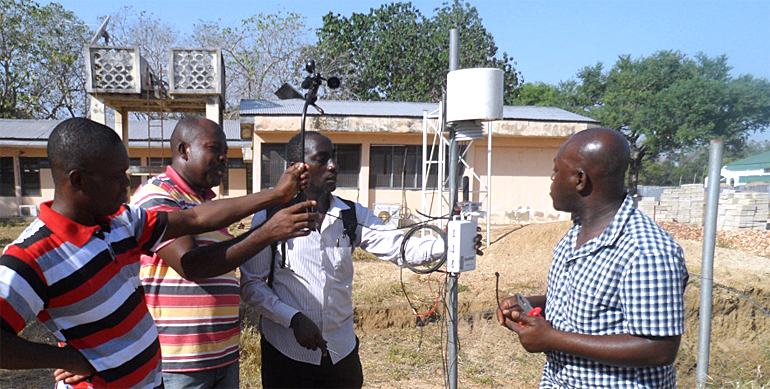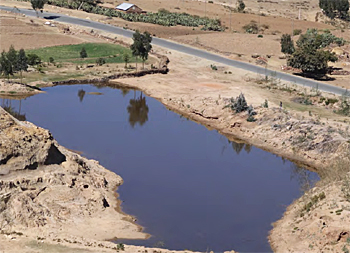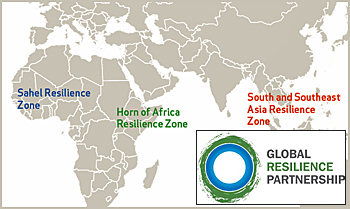Tahmo and MetaMeta selected to further develop their solutions on rainwater prediction and road water harvesting
 The Global Resilience Partnership today announced 17 teams to move forward in the Global Resilience Challenge. Two selected Dutch-lead teams are Tahmo with a hydro-meteorological monitoring station and MetaMeta with road water harvesting.
The Global Resilience Partnership today announced 17 teams to move forward in the Global Resilience Challenge. Two selected Dutch-lead teams are Tahmo with a hydro-meteorological monitoring station and MetaMeta with road water harvesting.
The challenge calls for innovative solutions to solve the greatest resilience challenges across the Sahel, the Horn of Africa and South and Southeast Asia. The selected teams were chosen from among nearly 500 applicants across six continents.
In the second stage the teams have to explore the local situation in the focus areas and fine tune their solution. In the final stage, the best plans will be funded with up to 1 million USD for implementation and upscaling.
Hydro-meteorological monitoring station
The Trans-African hydro-meteorological observatory (Tahmo) seeks to develop a network of weather stations across Africa. For this purpose Tahmo developed a low cost hydrological and meteorological monitoring station at Delft university of technology (on top photo).
The first generation stations have now been in the field for two years in Senegal, Ghana, Kenya, Uganda, and South Africa and the second generation of stations is expected to go to the field soon. The latest version is equipped with a business-card sized solar panel with enough power to report every hour, around the clock, with a back-up battery power sufficient for 3 months.
 An example of Roads for water is the use of an existing borrow pit that was originally used for construction of the road. Here seen in Ethiopia.
An example of Roads for water is the use of an existing borrow pit that was originally used for construction of the road. Here seen in Ethiopia.
Road water harvesting
The team led by MetaMeta entered the challenge with the option to construct new roads in a way that they act as a dam to harvest rainwater.
Roads are often planned and built with insufficient consideration for surface and ground water flows. As a result, these often have negative hydrological effects.
Yet, examples of road rainwater harvesting, or soil and water conservation measures and wells built next to a road show that roads can help increase the availability of water.
MetaMeta developed the concept Roads for water, for road constructions to incorporate routing of rainwater to storage ponds or recharge areas, or to help retain water in dry riverbeds, or to ensure systematic spreading of floodwater.
 Three stage challenge
Three stage challenge
The Global Resilience Challenge is a three-stage grant competition led by the Global Resilience Partnership, a 150 million USD effort of The Rockefeller Foundation, United States Agency for International Development (USAID), and the Swedish International Development Cooperation Agency (Sida).
With up to 200,000 USD in the second stage funding, the 17 teams will explore the effects of persistent cycles of drought, storms, famine, and other disasters on vulnerable populations in each of the focus regions, and identify locally driven, scalable solutions that can help communities and households adapt to and recover from chronic shocks and stresses, while reducing vulnerabilities.
In September the finalists for the last stage will be announced. Those teams will receive 1 million USD to implement their transformative solution within one year.
For the final stage three 'wild cards' will be available for teams that have not been selected before.
More information
Global Resilience Partnership
challenge@globalresiliencepartnership.org
www.globalresiliencepartnership.org
MetaMeta
's-Hertogenbosch, the Netherlands
+31 73 62 38 206
www.metameta.nl/research
and
www.roadsforwater.org



